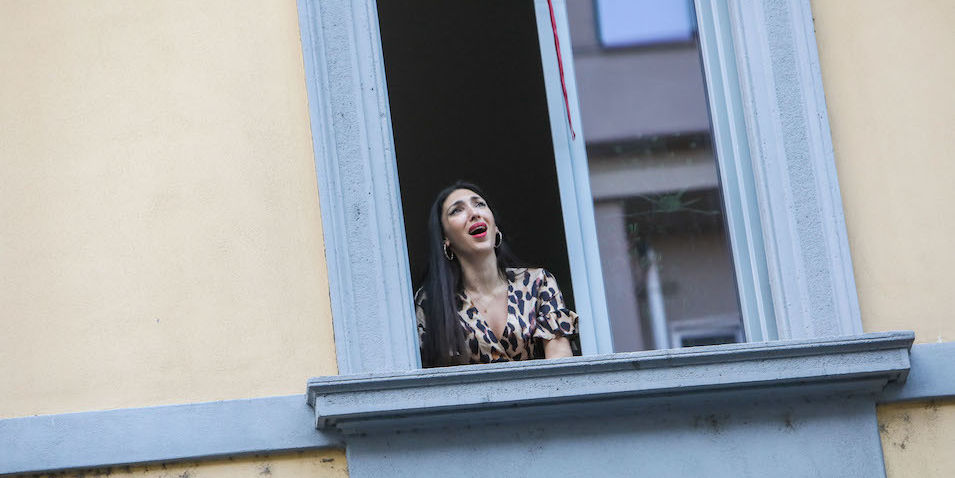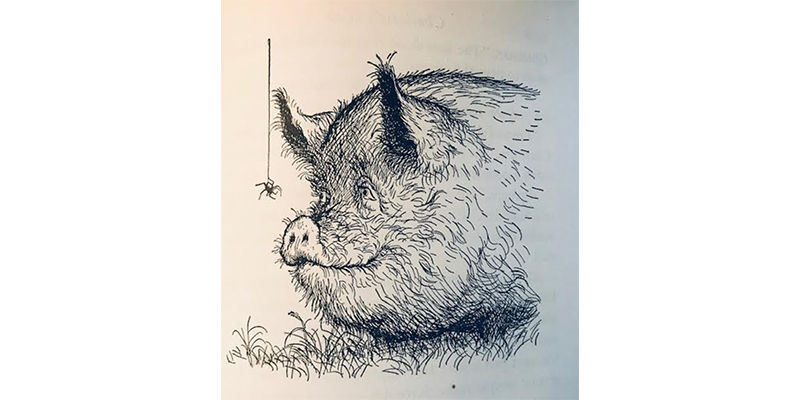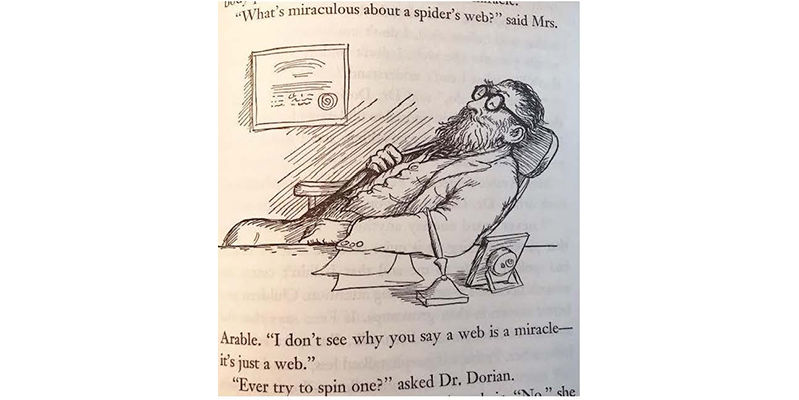Dear Health Care Workers,
Four weeks later, I am still in Pennsylvania. The yellow petals of forsythia and daffodils are mostly gone, out like little lights, but the lilacs are starting to bloom, and the apple blossoms. I just reread Charlotte's Web for a class. I was afraid to because it always made me cry when I was younger, and it did again. The farm where the animals speak to one another—the geese in honking threes, the sheep bleating about the ways of the world—is still familiar. And then there’s the pink pig, Wilbur, and his best friend, Charlotte, the spider who saves his life in a way that makes my heart hurt with love every time I read it. Fern, the farmer’s daughter, is the only human who can hear them, at least while she’s still young, and upon this reading I noticed more than I have before the doctor who reassures Fern’s skeptical, worried mother: “It is quite possible that an animal has spoken civilly to me and I didn’t catch it because I wasn’t paying attention. Children pay attention better than grownups.”
Lately I have been thinking about attention. How quiet certain things have become, making way for others. Where I am, I swear the birds are louder than ever, or maybe I’m more attuned to them. The geese woke me up this morning, and then I heard the doves, and now I’m listening to the starlings, the ones whose mouths aren’t full of twigs and straw, while they build a nest by my bedroom window. My brother, who is quieter than I am, and perhaps more alert because of it, hears the raspy call of a red fox most nights. But it's not just in the country that the animals are more present—they are coming out in suburbs, in cities. Last week they were on the cover of The New York Times.
Other voices are louder too. In the barn apartment where he lives, my brother listens to opera, a soprano named Hyesang whose name delights me for the way it rings true, to my English-trained ears, to her vocation. Yesterday we watched singers from all over the world perform in the tiny square windows of Zoom. Like many, I am moved by the videos of people singing from lit windows and balconies through quarantine. A friend just sent me a clip of a tuba player serenading the streets of Cambridge, and of course there is New York’s nightly eruption into shouting and claps of gratitude for doctors and nurses.
I love this outpouring, this spilling up, even as we are being asked to be more quiet and still than I can remember, even as we walk around in masks that remind me of the soft noses of animals, like the kind we used to wear at birthday parties. “Perhaps if people talked less, animals would talk more,” says Fern’s doctor. I like to think that as one thing goes quiet it makes room for something else to emerge, like daffodils yielding to lilacs. I like thinking of you all, doctors and nurses, working behind the scenes as steadfastly and unobtrusively as Charlotte. I imagine you with stethoscopes to hearts and lungs, tending to the warm, pink places in our bodies that help us sing. I hope we can all emerge from this time with the capacity to listen deeply, so that what is gentle and loving and not always visible within and among us can sing. In the meantime, I am grateful, so deeply grateful, for your attention.
Love,
Julianna
Mark your calendars for February 1, 2024! The Resiliency Center and the Center for Health Ethics, Arts, and Humanities are gearing up for the sixth Healthcare Stories event at Kingsbury Hall. This year's captivating theme, "Promise," invites healthcare professionals, patients, and community members to explore futures imagined, unexpected journeys, and transformative relationships.
University of Utah Black Cultural Center’s Meligha Garfield and Sara Cody share insights on celebrating Juneteenth respectfully and emphasize the importance of understanding its history to avoid misappropriation.


